cancer support
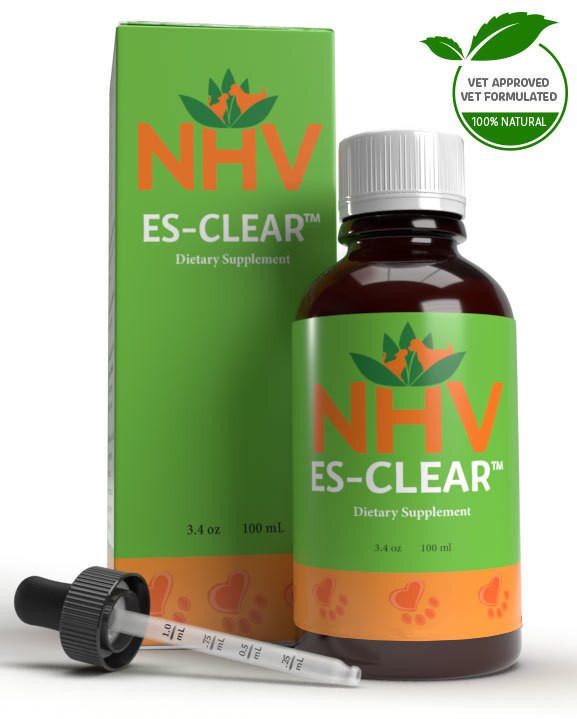
free shipping over $100 (USA & Canada)
1-877-937-4372 the pet expert hotline

BK-Detox, ES-Clear, Old Timer, and Turmeric

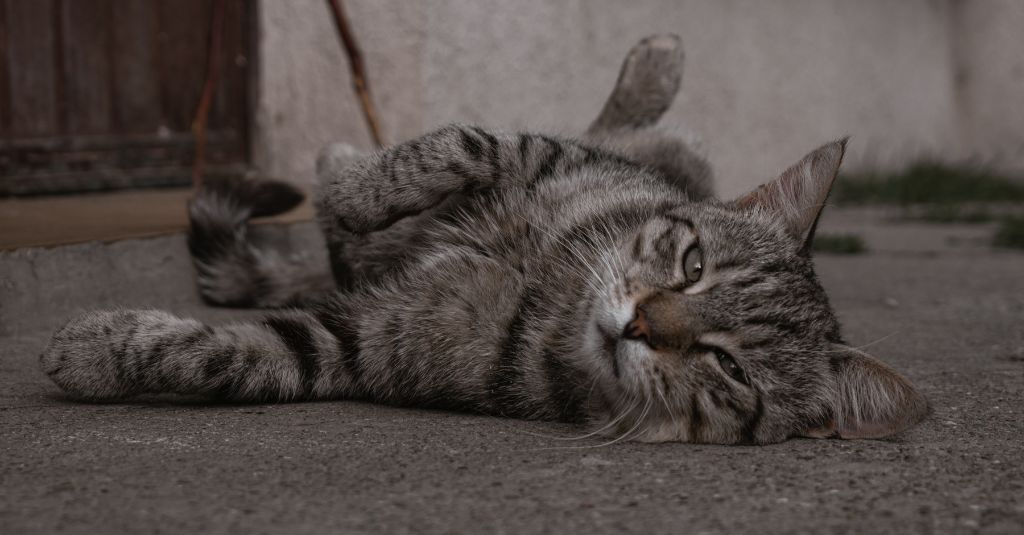
Slowing down can be a natural sign of aging in humans and pets alike. But if you notice other visual cues of low energy and mobility issues, like hind leg weakness in dogs and cats, something more serious might be at play.
Degenerative disorders happen when the functions of tissues or organs of your furkiddo deteriorate. This process often starts slowly but progresses over time, causing much discomfort and affecting your little one’s quality of life.
The good news is that veterinary medicine has developed and evolved to improve the diagnosis, treatment, and prevention of many of these debilitating conditions. There has also been an increase in the offer of holistic options for proactive and active support.
So let’s discuss four common canine and feline degenerative diseases and natural ways to be there for your senior pet through it all.
Degenerative lumbar spinal stenosis is a disorder of the vertebrae in the lower back that causes compression of the nerve roots. The cause is unknown, but dogs are more prone to suffer from it.
This condition affects the stability and mobility of your furkiddo, and can be really painful. Signs typically begin at 3 to 7 years of age and may include:
Osteoarthritis, also called arthrosis or arthritis, happens when there’s a gradual degeneration of the joint’s cartilage. This condition is also more common in our canine companions but can also affect cats. Arthritis affects primarily adult and elderly pets between 8 and 13 years old.
This issue can appear with no underlying conditions (idiopathic), or it can happen as a response to another problem. In the first case, some breeds are more prone to be affected, like Labrador Retrievers and German Shepherds. The secondary type happens more often and is commonly related to obesity.
Signs of osteoarthritis include:
An autoimmune disease is a flaw in a functional immune system that leads to an exaggerated response against cells and body tissues. This immune dysfunction causes an inflammatory reaction and damage to your little one’s body.
Some of the common autoimmune disorders include Lupus and Hemolytic Anemia. The veterinarian should rule out several other ailments before further investigating autoimmune diseases, as some of these are rare.
Unfortunately, there is no cure for autoimmune diseases. But there are ways to help suppress the immune system and decrease the attack of the defense cells. Therefore, addressing some of the symptoms and reducing the intensity of the lesions.

Like humans, cats and dogs can develop cancer, and its cause is difficult to define. For example, it can be due to genetic predisposition, immunologic deficiency, and inflammatory processes.
Lymphoma is the most common type of cancer in cats and dogs. Possible causes include infections (viruses and bacteria), especially for cats with FeLV and FIV.
The symptoms and treatment will depend on the type of cancer, the stage, and the prognosis. But these are some of the most common signs that you should take your little one to the vet for further examination:
As you can see, there are a lot of specificities about each of these degenerative disorders. So the first step should always be to reach out for veterinary guidance. With a confirmed diagnosis, the specialist can recommend the correct treatment, which may include one or a combination of pharmaceuticals, chemotherapy, surgery, and dietary changes. Natural remedies, like our herbal supplements, can give additional support and help improve the pet’s quality of life through it all.
NHV BK-Detox is especially useful for supporting pets that are fighting cancer due to its blood cleanser and anti-tumor properties and may be combined with NHV ES-Clear for added cancer support.
ES-Clear also helps balance the immune system and may improve vitality and general well-being for most degenerative disorders.
Another supplement recommended is NHV Old Timer. This herbal formulation has anti-inflammatory, antioxidant, and restorative actions, which may help alleviate arthritis, muscle discomfort, and symptoms associated with nervous system disorders.
Besides that, Old Timer can be really helpful in cases of autoimmune diseases and useful in cases where the immune system has been damaged by chemicals, like chemotherapy.
Furthermore, to add extra anti-inflammatory support, NHV Turmeric is a super herb that can benefit pets with cancer, joint discomfort, and autoimmune diseases.
You can find BK-Detox, ES-Clear, Old Timer, and our Turmeric extract on our Degenerative Disorders Super Support bundle, here.
A pet suffering from one of the many degenerative disorders has a genetic predisposition to that issue. That is why it’s vital to understand how different breeds or types of dogs and cats may be more prone to a specific degenerative disorder.
The knowledge about the most common degenerative diseases and typical symptoms, like pain and hind leg weakness in dogs and cats, can help pet parents discuss treatment options with their trusted vet. Noticing the signs early on can increase the chances of slowing degeneration and being proactive.
At NHV we are true believers in the importance of proactive support, and our team of Pet Experts is always here to help you start your little one on their wellness journey. Click the button below to talk to someone on our team.
cancer support

A Vet-Approved Natural Canine Cancer Support Supplement
buy 2 and save $3
3 month supply for a small to medium size pet.
All-natural ES-Clear helps manage the symptoms of cancer in dogs. This vet-formulated supplement will support your dog's overall immunity, health, and well-being.

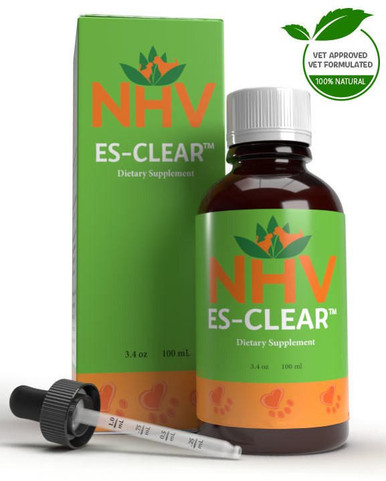
All-natural ES-Clear helps manage the symptoms of cancer in dogs. This vet-formulated supplement will support your dog's overall immunity, health, and well-being.

Use ES-Clear in conjunction with traditional or holistic dog cancer treatments, including nutritional therapy to help improve your pup’s quality of life. With the right nutrition, supplementation, holistic cancer therapy, and vet prescribed treatment, your dog can live for many years with a cancer diagnosis.
It is heartbreaking to learn that your dog has cancer. ES-Clear was created to help pet parents naturally support their dogs’ cancer treatment plan prescribed by their veterinarian. It was designed to balance your dog’s immune system, ease the discomfort associated with cancer in dogs, and help improve appetite and energy levels.
Living with cancer can be draining on your dog’s body. With a specially formulated blend of herbs, ES-Clear helps balance immune function and reverse the buildup of toxins.
Natural herbs work synergistically to support the body while helping to minimize the side effects of cancer treatment. You can read Ranger's story of his battle with cancer, and find out how he’s doing today.
NHV’s ES-Clear can be safely used with conventional treatment for cancer in dogs as a natural supporting supplement. Talk to your vet about using it as part of holistic treatment for your dog’s cancer
To learn more about the benefits of integrative medicine, ask an NHV expert today. At NHV, we want your fur baby to be fur-ever healthy and happy naturally.
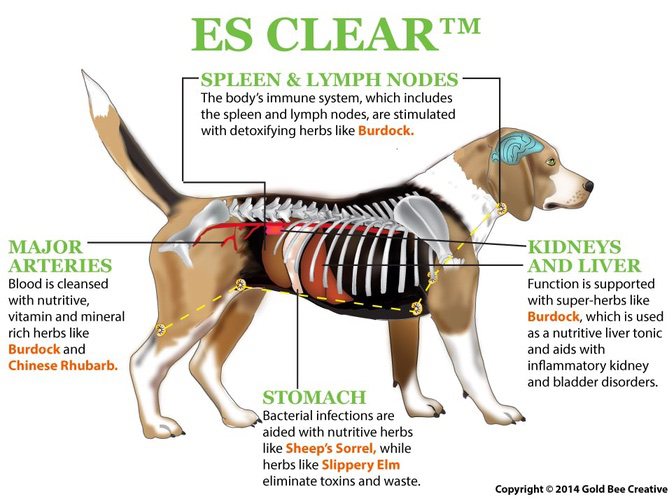
Burdock - This potent herb is full of nutrients including natural minerals such as calcium, iron, riboflavin, phosphorous and thiamine. It also supports the liver and helps cleanse free radicals from the blood to improve blood quality.
Sheep’s Sorrel - An excellent source of vitamins such as A, B complex and C, D, E and K and minerals and has been used to holistically treat cancer in dogs, along with other degenerative diseases. Helps balance the dog’s immune system. Contains beta-carotene which is high in antioxidants.
Slippery Elm - Contains anti-inflammatory properties and assists in soothing the stomach lining, which can become inflamed as a side effect when taking some conventional medicines.
Chinese Rhubarb - A multi-functional herb with astringent properties that help the appetite, which dogs can also suffer from during conventional treatment of canine cancer. This powerful herb eliminates toxins by cleansing the intestines, and helps to detoxify the liver by improving bile flow.
Select your pet's weight to determine the correct dose.
To be taken twice daily. Determine your pet’s weight and then use the easy chart below to determine the correct dose. This is the minimum dosage.
Pet's Weight Dosage
0 - 15 lb = 0.5 ml
16 - 30 lb = 1.0 ml
31 - 45 lb = 1.5 ml
46 - 60 lb = 2.0 ml
61 - 75 lb = 2.5 ml
Over 75 lb = 3.0 ml
How to Administer
Shake well before use. The easiest method is to use the dropper provided and place the drops into your pet’s food or favorite treat. You can also use the dropper and squirt directly into the pet’s mouth. Some pets can be finicky, if this occurs consider hiding the drops in foods most pet’s love such as fish, chicken, yogurt, or a favorite treat. If your pet only eats dry food then soak a few kibbles at feeding time.
For Best Results
Herbal dietary supplements are beneficial to the health and well-being of your pet and are safe for long-term use. Every pet responds to natural herbal supplements differently, therefore it is important to be consistent and administer the product daily. Supplements generally take two to four weeks to take effect, however this will vary from one animal to the next.
Product Storage
All NHV Natural Pet Products are pure herbal extracts and contain no artificial additives, preservatives or coloring. Shelf life after opening is 6 months and must be refrigerated after opening.
Cautions and Contraindications
Do not use ES Clear in pregnant or nursing animals. Speak to your vet before using our products. A second visit is recommended if your pet’s condition does not improve, or deteriorates after continued use of the supplements.
All information provided by NHV Natural Pet Products is for educational purposes only.
Use ES-Clear in conjunction with traditional or holistic dog cancer treatments, including nutritional therapy to help improve your pup’s quality of life. With the right nutrition, supplementation, holistic cancer therapy, and vet prescribed treatment, your dog can live for many years with a cancer diagnosis.
It is heartbreaking to learn that your dog has cancer. ES-Clear was created to help pet parents naturally support their dogs’ cancer treatment plan prescribed by their veterinarian. It was designed to balance your dog’s immune system, ease the discomfort associated with cancer in dogs, and help improve appetite and energy levels.
Living with cancer can be draining on your dog’s body. With a specially formulated blend of herbs, ES-Clear helps balance immune function and reverse the buildup of toxins.
Natural herbs work synergistically to support the body while helping to minimize the side effects of cancer treatment. You can read Ranger's story of his battle with cancer, and find out how he’s doing today.
NHV’s ES-Clear can be safely used with conventional treatment for cancer in dogs as a natural supporting supplement. Talk to your vet about using it as part of holistic treatment for your dog’s cancer
To learn more about the benefits of integrative medicine, ask an NHV expert today. At NHV, we want your fur baby to be fur-ever healthy and happy naturally.

Burdock - This potent herb is full of nutrients including natural minerals such as calcium, iron, riboflavin, phosphorous and thiamine. It also supports the liver and helps cleanse free radicals from the blood to improve blood quality.
Sheep’s Sorrel - An excellent source of vitamins such as A, B complex and C, D, E and K and minerals and has been used to holistically treat cancer in dogs, along with other degenerative diseases. Helps balance the dog’s immune system. Contains beta-carotene which is high in antioxidants.
Slippery Elm - Contains anti-inflammatory properties and assists in soothing the stomach lining, which can become inflamed as a side effect when taking some conventional medicines.
Chinese Rhubarb - A multi-functional herb with astringent properties that help the appetite, which dogs can also suffer from during conventional treatment of canine cancer. This powerful herb eliminates toxins by cleansing the intestines, and helps to detoxify the liver by improving bile flow.
Select your pet's weight to determine the correct dose.
To be taken twice daily. Determine your pet’s weight and then use the easy chart below to determine the correct dose. This is the minimum dosage.
Pet's Weight Dosage
0 - 15 lb = 0.5 ml
16 - 30 lb = 1.0 ml
31 - 45 lb = 1.5 ml
46 - 60 lb = 2.0 ml
61 - 75 lb = 2.5 ml
Over 75 lb = 3.0 ml
How to Administer
Shake well before use. The easiest method is to use the dropper provided and place the drops into your pet’s food or favorite treat. You can also use the dropper and squirt directly into the pet’s mouth. Some pets can be finicky, if this occurs consider hiding the drops in foods most pet’s love such as fish, chicken, yogurt, or a favorite treat. If your pet only eats dry food then soak a few kibbles at feeding time.
For Best Results
Herbal dietary supplements are beneficial to the health and well-being of your pet and are safe for long-term use. Every pet responds to natural herbal supplements differently, therefore it is important to be consistent and administer the product daily. Supplements generally take two to four weeks to take effect, however this will vary from one animal to the next.
Product Storage
All NHV Natural Pet Products are pure herbal extracts and contain no artificial additives, preservatives or coloring. Shelf life after opening is 6 months and must be refrigerated after opening.
Cautions and Contraindications
Do not use ES Clear in pregnant or nursing animals. Speak to your vet before using our products. A second visit is recommended if your pet’s condition does not improve, or deteriorates after continued use of the supplements.
All information provided by NHV Natural Pet Products is for educational purposes only.
immune support
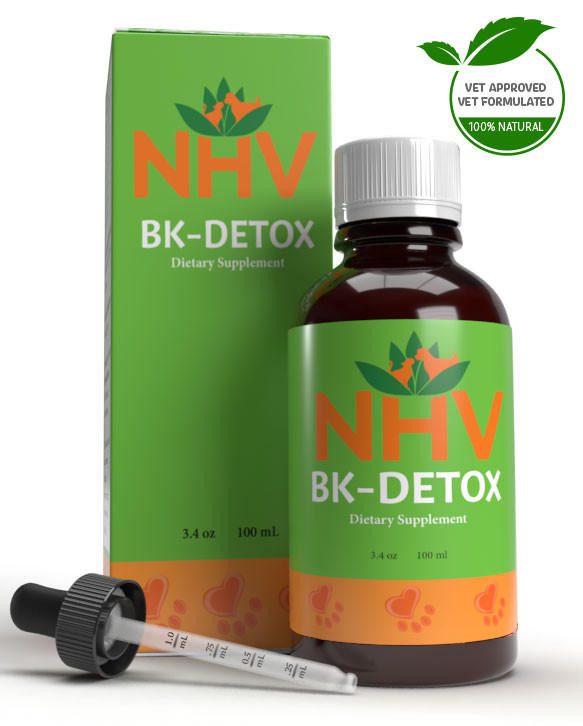
Cat Immune System Booster, Cancer Support, Gentle Detox, and Blood Cleanser
buy 2 and save $3
3 month supply for a small to medium size pet.
All natural, gentle, herbal support for cats, dealing with compromised immune systems that helps detoxify the vital organs and blood.

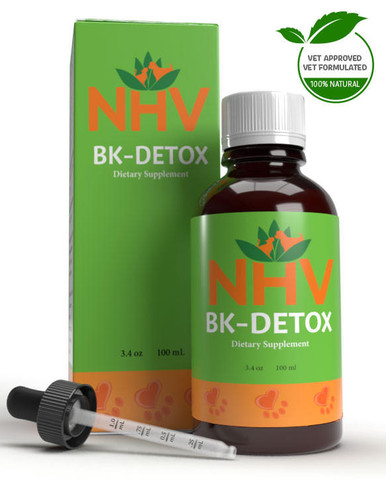
All natural, gentle, herbal support for cats, dealing with compromised immune systems that helps detoxify the vital organs and blood.

Cats live in a world full of pollutants that they breathe, ingest, and play in every day. BK Detox is a gentle herbal detox that helps Protect them with BK Detox, an all-natural cat immune system booster and detoxifier specially formulated to restore balance, regulate the immune system, and help your pet live a healthier, happier life.
BK Detox is especially useful for pets suffering from:
BK Detox will help your cat to gently flush out toxins from their vital organs and cleanse the blood. This is a cat immune supplement that promotes their long-term vitality.
The immune system plays an important role in helping your cat resist infection and overcome sickness.
When the immune system is compromised, toxins can accumulate in your cat and cause problems including liver disorders, urinary tract infections, skin allergies, tumors, bad breath, and respiratory issues.
“Boost” is a common term used for supplements that make the immune system work better, but supplements like NHV more accurately help to balance the immune system. The goal of cat immune system boosters like BK Detox is to balance the immune system so that it can more effectively respond to threats and process toxins out of their body.
BK Detox was formulated by a holistic veterinarian completely from 100% natural ingredients. It is safe for your cat to take alongside any conventional medicine prescribed by their veterinarian, including long-term medications.
See how BK Detox helped Holly with her allergies
How do you know if BK Detox will help your cat? Call our pet expert hotline at 1-877-937-4372 with questions about boosting your cat’s immune system. You can also visit our Pet Expert Q&A.

Red Clover – A blood-purifying herb with antibiotic and anti-inflammatory properties. It promotes cleansing and the elimination of toxins and deposits through diuretic and expectorant activity.
Cleavers – A tonic that increases the circulation of lymph-impaired areas of the body and aids in the drainage of lymph-engorged cysts, tumors, and inflamed tissues of the urinary tract.
Neem – An evergreen tree with powerful blood purifying and detoxifying effects.
Oregon Grape – Supports and improves digestion by helping rid the body of waste and toxins in the blood.
Gotu Kola – A small green herb known for its cleansing, diuretic, and strong antioxidant properties.
Buckthorn – A gentle laxative and blood-cleansing tonic.
Burdock – A highly effective blood purifier abundant in calcium, phosphorus, iron, thiamine, and riboflavin. Supports the entire body while gently eliminating toxic build up.
Sarsaparilla – A cleansing herb that stimulates the kidneys to flush deposits and clear toxins.
Echinacea Angustifolia – Cat immune system booster. Stimulates the body’s defense mechanism.
Chaparral – A blood purifying antioxidant rich in amino acids.
Prickly Ash – A tonic that stimulates the entire lymphatic system to encourage the elimination of toxic metabolites.
Select your pet's weight to determine the correct dose.
Bk Detox can be used as a detoxifier every 6 months. For best results administer the recommended dosage until the bottle is finished.
To be taken twice daily. Determine your pet’s weight and then use the easy chart below to determine the correct dose. This is the minimum dosage.
Pet's Weight Dosage
0 - 15 lb = 0.5 ml
16 - 30 lb = 1.0 ml
31 - 45 lb = 1.5 ml
46 - 60 lb = 2.0 ml
61 - 75 lb = 2.5 ml
Over 75 lb = 3.0 ml
How to Administer: Shake well before use. The easiest method is to use the dropper provided and place the drops into your pet’s food or favorite treat. You can also use the dropper and squirt directly into the pet’s mouth. Some pets can be finicky, if this occurs consider hiding the drops in foods most pet’s love such as fish, chicken, yogurt, or a favorite treat. If your pet only eats dry food then soak a few kibbles at feeding time.
For Best Results
Herbal dietary supplements are beneficial to the health and well-being of your pet and are safe for long-term use. Every pet responds to natural herbal supplements differently, therefore it is important to be consistent and administer the product daily. Supplements generally take two to four weeks to take effect, however this will vary from one animal to the next.
Product Storage
All NHV Natural Pet Products are pure herbal extracts and contain no artificial additives, preservatives, or coloring. Shelf life after opening is 6 months and must be refrigerated after opening.
Cautions and Contraindications
Do not use BK Detox in pregnant or nursing animals.
Speak to your vet before using our products. A second visit is recommended if your pet’s condition does not improve, or deteriorates after continued use of the supplements.
All information provided by NHV Natural Pet Products is for educational purposes only.
Cats live in a world full of pollutants that they breathe, ingest, and play in every day. BK Detox is a gentle herbal detox that helps Protect them with BK Detox, an all-natural cat immune system booster and detoxifier specially formulated to restore balance, regulate the immune system, and help your pet live a healthier, happier life.
BK Detox is especially useful for pets suffering from:
BK Detox will help your cat to gently flush out toxins from their vital organs and cleanse the blood. This is a cat immune supplement that promotes their long-term vitality.
The immune system plays an important role in helping your cat resist infection and overcome sickness.
When the immune system is compromised, toxins can accumulate in your cat and cause problems including liver disorders, urinary tract infections, skin allergies, tumors, bad breath, and respiratory issues.
“Boost” is a common term used for supplements that make the immune system work better, but supplements like NHV more accurately help to balance the immune system. The goal of cat immune system boosters like BK Detox is to balance the immune system so that it can more effectively respond to threats and process toxins out of their body.
BK Detox was formulated by a holistic veterinarian completely from 100% natural ingredients. It is safe for your cat to take alongside any conventional medicine prescribed by their veterinarian, including long-term medications.
See how BK Detox helped Holly with her allergies
How do you know if BK Detox will help your cat? Call our pet expert hotline at 1-877-937-4372 with questions about boosting your cat’s immune system. You can also visit our Pet Expert Q&A.

Red Clover – A blood-purifying herb with antibiotic and anti-inflammatory properties. It promotes cleansing and the elimination of toxins and deposits through diuretic and expectorant activity.
Cleavers – A tonic that increases the circulation of lymph-impaired areas of the body and aids in the drainage of lymph-engorged cysts, tumors, and inflamed tissues of the urinary tract.
Neem – An evergreen tree with powerful blood purifying and detoxifying effects.
Oregon Grape – Supports and improves digestion by helping rid the body of waste and toxins in the blood.
Gotu Kola – A small green herb known for its cleansing, diuretic, and strong antioxidant properties.
Buckthorn – A gentle laxative and blood-cleansing tonic.
Burdock – A highly effective blood purifier abundant in calcium, phosphorus, iron, thiamine, and riboflavin. Supports the entire body while gently eliminating toxic build up.
Sarsaparilla – A cleansing herb that stimulates the kidneys to flush deposits and clear toxins.
Echinacea Angustifolia – Cat immune system booster. Stimulates the body’s defense mechanism.
Chaparral – A blood purifying antioxidant rich in amino acids.
Prickly Ash – A tonic that stimulates the entire lymphatic system to encourage the elimination of toxic metabolites.
Select your pet's weight to determine the correct dose.
Bk Detox can be used as a detoxifier every 6 months. For best results administer the recommended dosage until the bottle is finished.
To be taken twice daily. Determine your pet’s weight and then use the easy chart below to determine the correct dose. This is the minimum dosage.
Pet's Weight Dosage
0 - 15 lb = 0.5 ml
16 - 30 lb = 1.0 ml
31 - 45 lb = 1.5 ml
46 - 60 lb = 2.0 ml
61 - 75 lb = 2.5 ml
Over 75 lb = 3.0 ml
How to Administer: Shake well before use. The easiest method is to use the dropper provided and place the drops into your pet’s food or favorite treat. You can also use the dropper and squirt directly into the pet’s mouth. Some pets can be finicky, if this occurs consider hiding the drops in foods most pet’s love such as fish, chicken, yogurt, or a favorite treat. If your pet only eats dry food then soak a few kibbles at feeding time.
For Best Results
Herbal dietary supplements are beneficial to the health and well-being of your pet and are safe for long-term use. Every pet responds to natural herbal supplements differently, therefore it is important to be consistent and administer the product daily. Supplements generally take two to four weeks to take effect, however this will vary from one animal to the next.
Product Storage
All NHV Natural Pet Products are pure herbal extracts and contain no artificial additives, preservatives, or coloring. Shelf life after opening is 6 months and must be refrigerated after opening.
Cautions and Contraindications
Do not use BK Detox in pregnant or nursing animals.
Speak to your vet before using our products. A second visit is recommended if your pet’s condition does not improve, or deteriorates after continued use of the supplements.
All information provided by NHV Natural Pet Products is for educational purposes only.
joint support
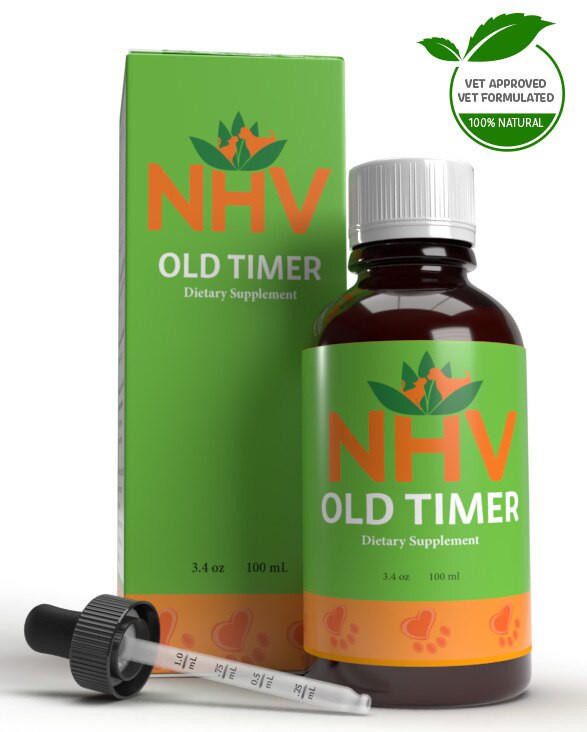
Natural dog joint support to alleviate arthritis, muscle, and joint discomfort
buy 2 and save $3
3 month supply for a small to medium size pet
NHV’s Old Timer joint support for dogs provides your canine companion with natural support to help alleviate arthritis, muscle, and joint discomfort. Just one bottle contains a 100 day supply for a small-medium sized dog.


NHV’s Old Timer joint support for dogs provides your canine companion with natural support to help alleviate arthritis, muscle, and joint discomfort. Just one bottle contains a 100 day supply for a small-medium sized dog.

Getting older is never easy, especially for dogs. Arthritis is a degenerative disease that progresses with age. It is a debilitating condition that can lead to impaired mobility and even hip dysplasia in dogs.
Finding the right supplements for older dogs can be a challenge, but NHV’s supplements are safe to be given along with any vet prescribed medications. NHV Old Timer can be given to dogs of any age. In fact, we would recommend starting the Old Timer at mid-age even before severe arthritis develops, as a natural and effective proactive care regimen.
We also have a complete Rejuvenation Kit for arthritis and joint discomfort.
Just because your dog is getting older doesn’t mean playtime is over. Read how Snuku bounces back from arthritis with Old Timer dog joint support supplements.
If you have questions, you can ask an NHV expert because we are here to help give guidance and support so your precious pooch can jump for joy and raise the ruff!
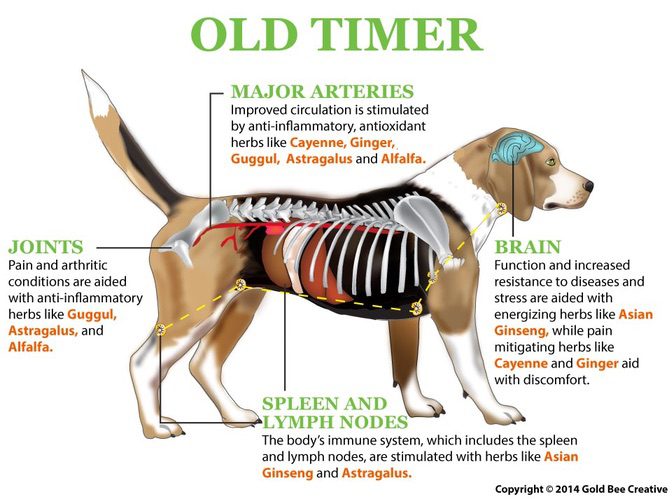
Six potent herbal ingredients will target the entire body to provide dogs support with joints, spleen, lymph nodes, major arteries.
Select your pet's weight to determine the correct dose.
To be taken twice daily. Determine your pet’s weight and then use the easy chart below to determine the correct dose. This is the minimum dosage.
Pet's Weight Dosage
0 - 15 lb = 0.5 ml
16 - 30 lb = 1.0 ml
31 - 45 lb = 1.5 ml
46 - 60 lb = 2.0 ml
61 - 75 lb = 2.5 ml
Over 75 lb = 3.0 ml
How to Administer
Shake well before use. The easiest method is to use the dropper provide and places the drops into your pet’s food or favorite treat. You can also use the dropper and squirt directly into the pet’s mouth.
Some pets can be finicky, if this occurs consider hiding the drops in foods most pet’s love such as fish, chicken or yogurt or a favorite treat. If your pet only eats dry food then soak a few kibbles at feeding time.
For Best Results
Herbal dietary supplements are beneficial to the health and wellbeing of your pet and are safe for long-term use. Every pet responds to natural herbal supplements differently, therefore it is important to be consistent and administer the product daily. Supplements generally take two to four weeks to take effect, however this will vary from one animal to the next.
Product Storage
All NHV Natural Pet Products are pure herbal extracts and contain no artificial additives, preservatives or coloring. Shelf life after opening is 6 months and must be refrigerated after opening.
Cautions and Contraindications
Do not use Old Timer in pregnant or nursing animals. Should be used in moderation in cases of sensitive digestive tract. Speak to your vet before using our products. A second visit is recommended if your pet’s condition does not improve, or deteriorates after continued use of the supplements.
All information provided by NHV Natural Pet Products is for educational purposes only.
Getting older is never easy, especially for dogs. Arthritis is a degenerative disease that progresses with age. It is a debilitating condition that can lead to impaired mobility and even hip dysplasia in dogs.
Finding the right supplements for older dogs can be a challenge, but NHV’s supplements are safe to be given along with any vet prescribed medications. NHV Old Timer can be given to dogs of any age. In fact, we would recommend starting the Old Timer at mid-age even before severe arthritis develops, as a natural and effective proactive care regimen.
We also have a complete Rejuvenation Kit for arthritis and joint discomfort.
Just because your dog is getting older doesn’t mean playtime is over. Read how Snuku bounces back from arthritis with Old Timer dog joint support supplements.
If you have questions, you can ask an NHV expert because we are here to help give guidance and support so your precious pooch can jump for joy and raise the ruff!

Six potent herbal ingredients will target the entire body to provide dogs support with joints, spleen, lymph nodes, major arteries.
Select your pet's weight to determine the correct dose.
To be taken twice daily. Determine your pet’s weight and then use the easy chart below to determine the correct dose. This is the minimum dosage.
Pet's Weight Dosage
0 - 15 lb = 0.5 ml
16 - 30 lb = 1.0 ml
31 - 45 lb = 1.5 ml
46 - 60 lb = 2.0 ml
61 - 75 lb = 2.5 ml
Over 75 lb = 3.0 ml
How to Administer
Shake well before use. The easiest method is to use the dropper provide and places the drops into your pet’s food or favorite treat. You can also use the dropper and squirt directly into the pet’s mouth.
Some pets can be finicky, if this occurs consider hiding the drops in foods most pet’s love such as fish, chicken or yogurt or a favorite treat. If your pet only eats dry food then soak a few kibbles at feeding time.
For Best Results
Herbal dietary supplements are beneficial to the health and wellbeing of your pet and are safe for long-term use. Every pet responds to natural herbal supplements differently, therefore it is important to be consistent and administer the product daily. Supplements generally take two to four weeks to take effect, however this will vary from one animal to the next.
Product Storage
All NHV Natural Pet Products are pure herbal extracts and contain no artificial additives, preservatives or coloring. Shelf life after opening is 6 months and must be refrigerated after opening.
Cautions and Contraindications
Do not use Old Timer in pregnant or nursing animals. Should be used in moderation in cases of sensitive digestive tract. Speak to your vet before using our products. A second visit is recommended if your pet’s condition does not improve, or deteriorates after continued use of the supplements.
All information provided by NHV Natural Pet Products is for educational purposes only.
Published: December 27, 2022